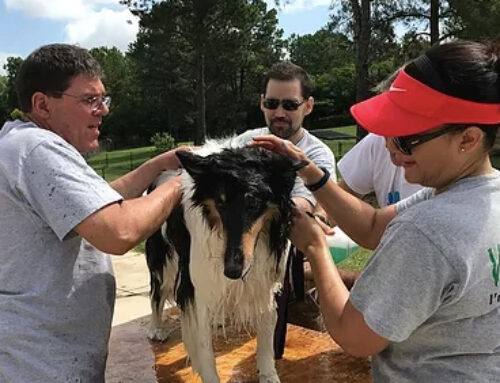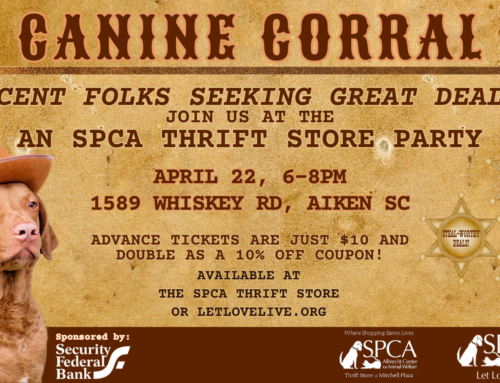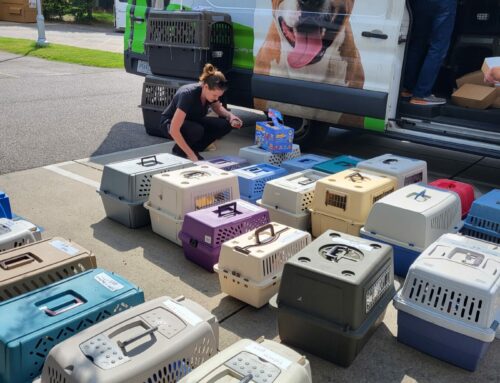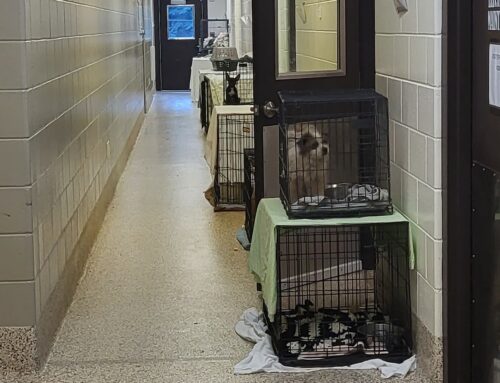By: Sarah A. Neikam, Operations Manager
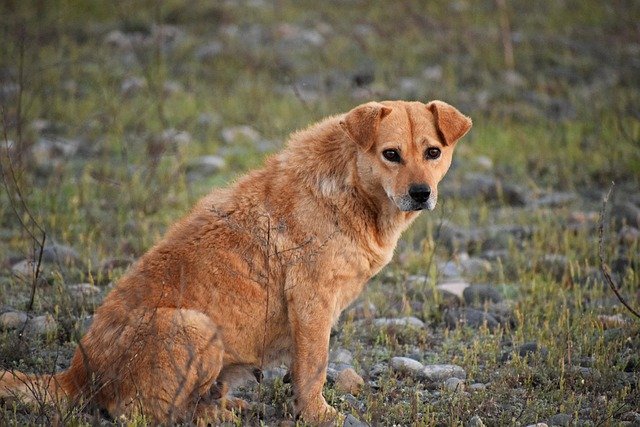 Dogs come into the care of the SPCA Albrecht Center for Animal Welfare in various ways. Some are picked up by Animal Control officers, others are picked up by citizens who find them wandering local streets. These are labeled as “stray” dogs, while “owner surrender” dogs are those brought in by an owner who is no longer able to keep them. Reasons for surrendering a pet vary, from a change of lifestyle like a required move or new family dynamic, to a lack of finances or poor health.
Dogs come into the care of the SPCA Albrecht Center for Animal Welfare in various ways. Some are picked up by Animal Control officers, others are picked up by citizens who find them wandering local streets. These are labeled as “stray” dogs, while “owner surrender” dogs are those brought in by an owner who is no longer able to keep them. Reasons for surrendering a pet vary, from a change of lifestyle like a required move or new family dynamic, to a lack of finances or poor health.
Surrendering a pet, or even a rescued stray, can be an emotional experience, and our staff is often asked what will happen to the dog. Here’s a brief look into a dog’s journey from shelter intake to adoption.
First, the dog is given a quick visual inspection to check for illness or injury and scanned for a microchip. If a microchip is found, the microchip company is contacted and owner information is obtained so they can be contacted.
If there is no microchip, or if the owner does not claim the dog, he is placed into an inside holding kennel for quarantine and given food, water and a blanket or dog bed. Vaccines are administered along with deworming and flea/tick medication. If illness or injury was discovered, it will be addressed and treated by the veterinary team.
The dog then receives a behavior evaluation. This evaluation determines if the dog needs training to correct unwanted behaviors such as jumping, leash pulling or general fearfulness.
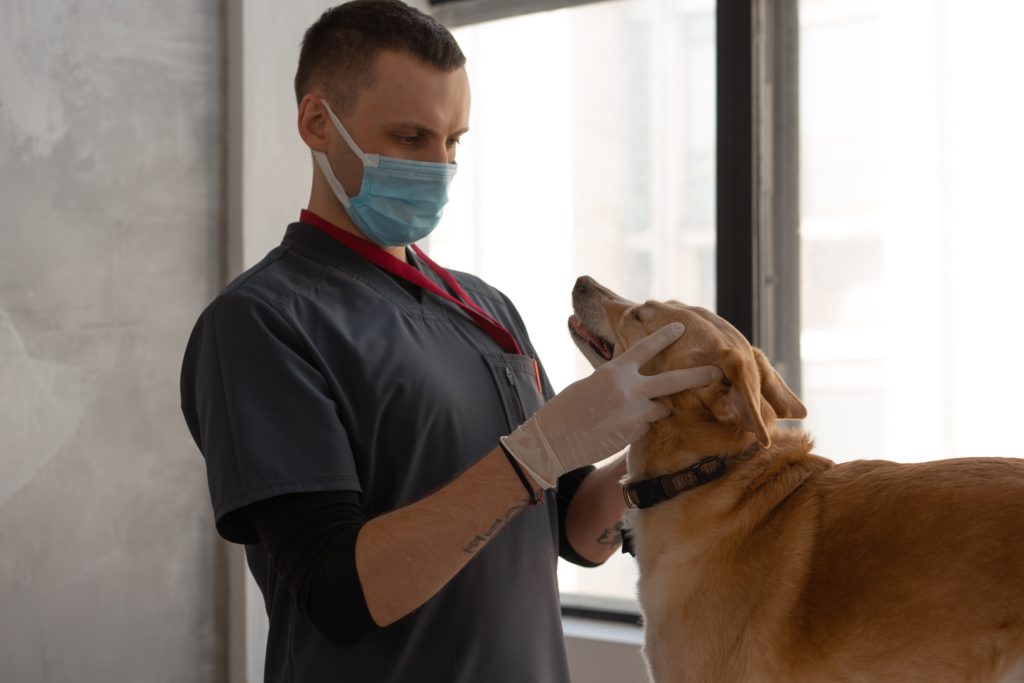
Once recovery is complete, the dog is placed in a room on the adoption floor. This is where volunteers can interact with the dog, take him on walks, introduce him to other dogs in play groups, and visitors and potential adopters can meet him.
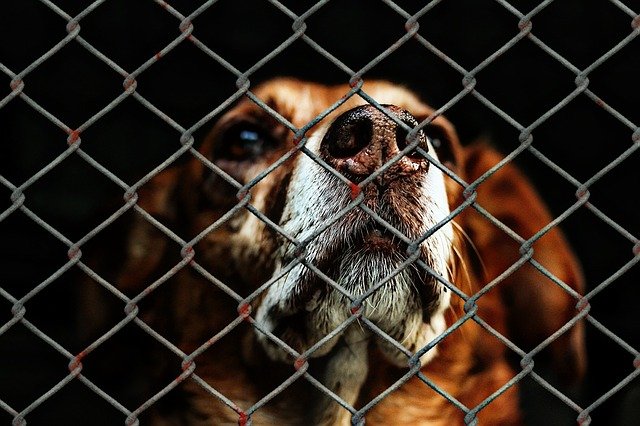
Like quarantine time, a dog’s time waiting for adoption also varies. Puppies and small dogs are adopted fairly quickly. Larger dogs and pitbull mixes, which make up the majority of the shelter dog population, tend to wait much longer.
Sadly, the longer a dog waits in a shelter, the more likely he is to mentally deteriorate and express unwanted behaviors. Fortunately, the SPCA Albrecht Center is equipped with an enrichment program that addresses not only a dog’s physical needs through daily walks and play time, but also stimulates him mentally with training and games, rewarding him with treats and positive reinforcement.
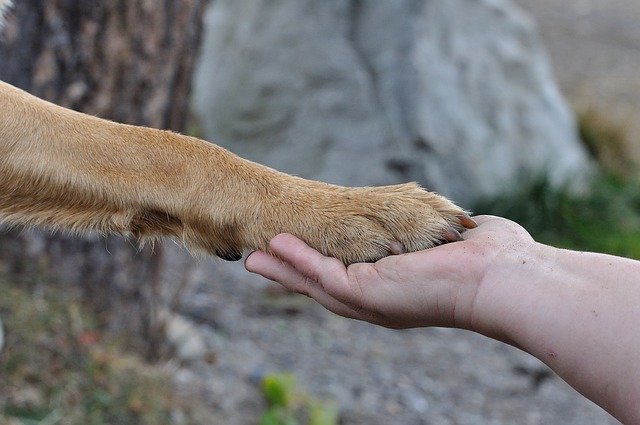
Finally, an adoption photo is taken and the dog begins a new journey, with a new family in his second chance at a better life.
There are so many dogs living this story, waiting for you to give them that second chance. See our adoptable dogs online or meet them in person at 199 Willow Run Road, in Aiken, SC.
Sarah Neikam has been with the SPCA Albrecht Center since 2012 serving first as Volunteer Coordinator, then Digital Media Manager, followed by Marketing Director and now Operations Manager. Sarah lives in Aiken with her husband Tom and their three adopted cats: Bastian, Luna and Grady plus three “former feral” cats: Willow, Big Boy & Phoebe.
The SPCA Albrecht Center for Animal Welfare is a private, nonprofit, no kill animal shelter in Aiken, SC. The SPCA also operates a local Thrift Store (“Where Shopping Saves Lives”), a public, affordable Veterinary Care Center & a Dog Park. It is our mission to improve the lives of companion animals by rehoming abused, abandoned, and neglected pets while fighting for their well-being through vigorous legislative efforts, humane education, and by offering affordable veterinary care for all.
WANT TO SUPPORT OUR HOMELESS ANIMALS?

